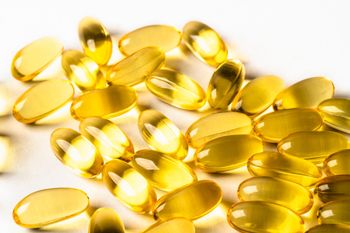
Vitamin K2 may help in treatment of chronic kidney disease, says recent animal study
A recent animal study found that vitamin K2, when combined with phosphate binders, may be a useful therapy for chronic kidney disease patients. The vitamin K2 in the study was MenaQ7 K2 as MK-7, supplied by NattoPharma, which is a part of Gnosis by Lesaffre.
A recent animal study published in Nephrology Dialysis Transplant1 found that vitamin K2, when combined with phosphate binders (PBs), may be a useful therapy for chronic kidney disease (CKD) patients. The vitamin K2 in the study was MenaQ7 K2 as MK-7, supplied by NattoPharma (Oslo, Norway), which is a part of Gnosis by Lesaffre.
"CKD patients often express intense vascular calcification as a symptom of their condition. People with chronic kidney failure are often prescribed phosphate binders to reduce the absorption of dietary phosphate, to lower their serum phosphate which is a major risk factor for vascular calcification. However, PBs also bind vitamin K, thereby potentially aggravating vitamin K deficiency,” explained Leon Schurgers, PhD, corresponding author to the paper, in a press release. Schurgers is a Professor of Biochemistry of Vascular Calcification and vice-chair of Biochemistry at the Cardiovascular Research Institute Maastricht (CARIM), Maastricht University, and corresponding author to the paper. “This vitamin K binding by PBs may offset beneficial effects of phosphate level reduction on reducing vascular calcification,” he continued. “With this study, we wanted to assess whether combining PBs with K2 supplementation inhibited vascular calcification.”
In the study, researchers induced vitamin K deficiency in rats, then fed them a high phosphate diet in the presence of low and high vitamin K2. The rats were randomized to either control or one of four different phosphate binders for eight weeks. Results showed that the combination of a high vitamin K2 diet and PB treatment significantly reduced vascular calcification compared to MK7 and PB treatment alone. High vitamin K2 and PBs also led to reduced vascular oxidative stress.
"In an animal model of kidney failure with vitamin K-deficiency, neither phosphate binder therapy nor vitamin K2 supplementation alone prevented VC,” concluded the authors in the study. “However, the combination of high vitamin K2 with PB treatment significantly attenuated VC. Our findings might provide a combination therapy to combat VC in CKD. These findings should be translated to human research.”
“While this is early research, it is still significant in furthering our understanding of the K2 mechanism and its potential for improving cardiovascular health for the global population, but specifically at-risk populations like those suffering from CKD,” said Hogne Vik, MD, PhD, MBA, chief medical officer with NattoPharma – Gnosis by Lesaffre. “K2 is the only known compound to date shown to impact vascular calcification. We are proud to continue driving our understanding of Vitamin K2, building on the already substantial body of evidence showing it is a safe and effective cardiovascular protector."
Reference
- Neradova A et al. “Combining phosphate binder therapy with vitamin K2 inhibits vascular calcification in an experimental animal model of kidney failure.” Nephrology Dialysis Transplant, Published online ahead of print on October 30, 2021.
Newsletter
From ingredient science to consumer trends, get the intel you need to stay competitive in the nutrition space—subscribe now to Nutritional Outlook.





